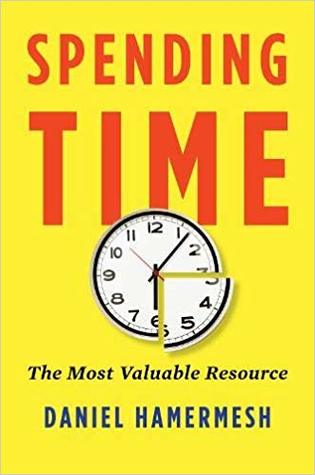
When someone asks you how you are, what’s your standard reply? Are you “fine?” “I’m really busy?” What does your reply say about the way in which you regard your most precious resource, your time? That’s the subject of this episode, in which EconTalk host Russ Roberts welcomes labor economist Daniel Hamermesh to the program. The quantity of time is, obviously, fixed, but the relative scarcity of our time can change in response to a lot of factors, as can the way we think about how much “time” we have available to us. Hamermesh worries that while almost every aspect of our lives has improved over the last 100 years, we fail to appreciate the “extra” time we’ve gained, or how we could better use the time we have available.
For example, people with higher (family) incomes use their time differently than those with lower incomes. They sleep less and watch less TV, for example. Their time is not any scarcer, Hamermesh assures us; “it’s just a little more precious.” How has the way you use your time changed over the course of your life? The way you work? It’s your turn now… Use our Extra in the classroom, at the dinner table, wherever the mood for conversation strikes.
1- The conversation begins with a discussion of the many labor-saving devices, including pizza, that we benefit from today and how they have changed the nature of our “work.” How well-defined is your (paid) work time? To what extent do you “count” the production time you spend in your home as work?* How do Hamermesh and Roberts suggest the nature of work has changed in recent decades? (Think of their comments about activities such as reading, running, and cooking…)
2- Who does more (non-paid) work in the home generally, men or women? Why does Hamermesh suggest the age gap between husbands and wives has been shrinking? What does this tell us about time use by gender? About comparative advantage?
3- Roberts references his recent conversation with Mariana Mazzucato on child labor laws. Roberts suggests that the decrease in child labor is less the result of legislation and more market driven. Hamermesh makes a similar suggestion with regard to workplace safety, particularly with respect to the rate of workplace deaths. What reasons do they offer to support their point of view, and to what extent are you convinced?
4- Toward the end of the episode, Roberts and Hamermesh have a brief discussion about minimum wage, which Hamermesh thinks is “not important enough to worry about.” Why does he think that? How does his viewpoint compare to that of recent guest Jacob Vigdor?
5- Have you stopped to consider better ways to use your time? To use your income? To improve you life? To become less of a work-a-holic? If so, have you acted on them? What was the result? Has this episode affected the way you think about your time? In what way(s)?
*We know such work isn’t included in measures such as GDP. Here we mean how much of your home production time do you consider work?


READER COMMENTS
Earl Rodd
Apr 1 2019 at 9:42pm
I wanted to add a subtle point to the discussion about Americans working more hours per year and its relationship to mandatory vacation time in most Western nations (I lived in Australia for 9 years and enjoyed the extra time off – even though I was paid less than I would have been for the same job in the US). In the US, when people change jobs, they generally come in a as a “new” employee which means they start at the minimum vacation time, usually 2 weeks. Decades ago, far more people worked for the same company for many years, or their entire career, and thus eventually passed the years required for 3, 4, or even 5 weeks of vacation time. Thus one effect of mandatory vacation time (e.g. 4 weeks) is to make changing jobs less painful.
Amy Willis
Apr 3 2019 at 11:42am
Earl, that’s a great point, and one I had not thought of. Do you think that is an intended goal of mandatory vacation policy? We have experienced some decline in labor mobility in the US, and certainly the lack of “portability” of benefits generally is almost certainly behind some of this.